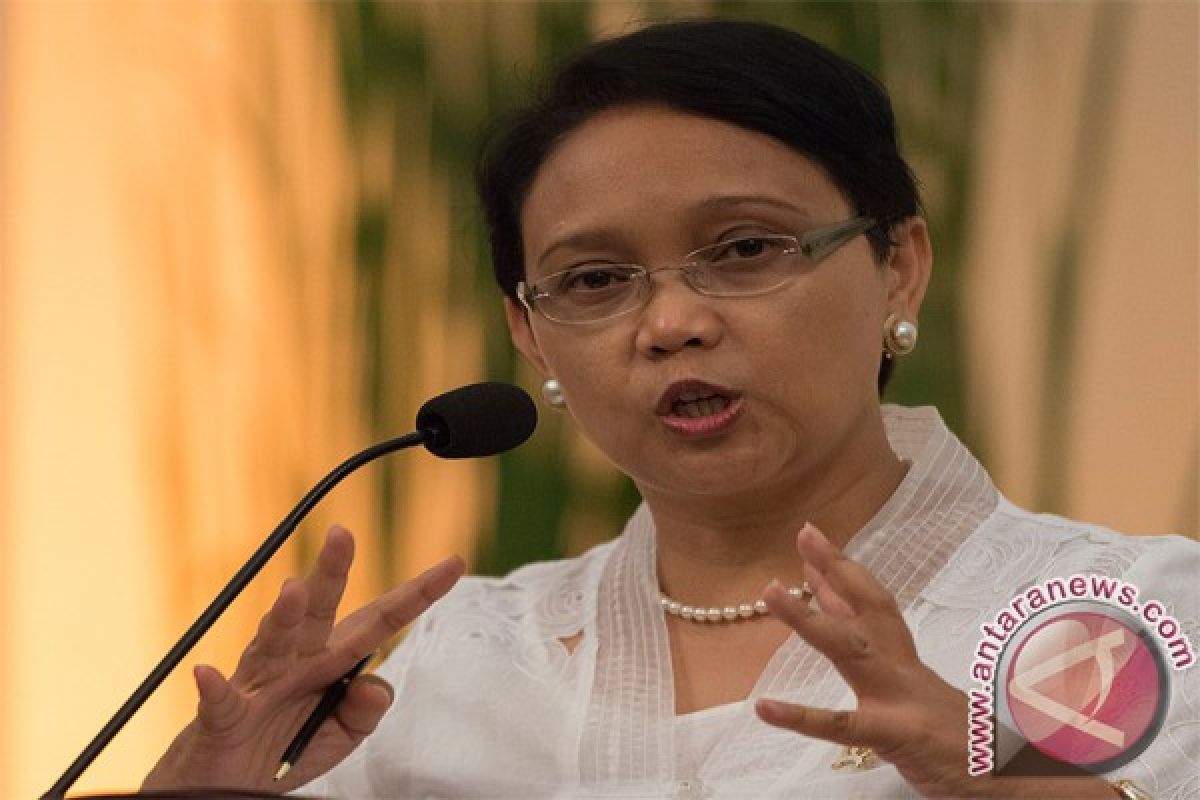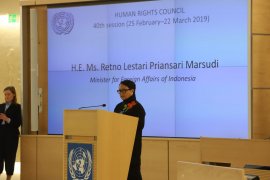The case had been going on since 1999, with a court`s ruling issued in 2001."Jakarta (ANTARA News) - Indonesia was informed about Siti Zaenabs execution by the Saudi Arabian government after it was already carried out, Foreign Affairs Minister Retno L. P. Marsudi said here on Wednesday.
"We received the information from our consulate in Jeddah only after the execution had already been carried out," she stated.
Marsudi added that she had sent a note in protest, asking why the Indonesian representative was not informed about the execution beforehand.
Siti Zaenab had been convicted of killing her employer Nourah binti Abdullah Duhem Al Maruba in 1999, and had been jailed in Madinah since October 5, 1999.
On January 8, 2001, the court issued a death penalty, and only the family of the victim could grant her a pardon. As the victims first child Walid bin Abdullah bin Muhsin Al Ahmadi was not an adolescent at the time, the execution was postponed.
In 2013, after Ahmadi became an adolescent, he turned down Zaenabs request for a pardon, following which she was executed at 10 a.m. local time on Tuesday.
The minister further noted that the Indonesian government had fought to save Zaenab through legal avenues, both diplomatic and informal channels.
"The case had been going on since 1999, with a courts ruling issued in 2001. However, (the execution was postponed) pending the heir of the victim becoming an adolescent. In the end, no pardon was granted, which led to the execution," she pointed out.
The government had tried all possible approaches to get a pardon from the victims family since the term of late former president Abdulrahman Wahid, Marsudi remarked.
"Three presidents (Abdulrahman Wahid, Susilo Bambang Yudhoyono and Joko Widodo) wrote to the Saudi government and appealed for a pardon to the victims family," she affirmed, adding that in March 2015, she had also raised the issue when she met with the deputy foreign affairs minister of Saudi.
Moreover, Saudi Arabian Ambassador to Indonesia Mustofa I A Mubarak said here on Wednesday that the Saudi government had informed the Indonesian representative in the country about the plan to execute Siti Zaenab.
"Plans for the execution had been made known before, but with regard to the date of the execution, I cannot say anything as it falls under the authority of the court," he told newsmen.
He admitted he had been questioned about why the Saudi government had not informed Indonesia about the implementation of the death penalty.
"The Saudi government cannot influence the judicial process, but as far as I know, it is a normal move under the Saudi system," Mubarak remarked.
The ambassador further noted that an official from the Indonesian representative office had once visited Siti Zaenab in prison and communicated with her directly.
"The Indonesian embassy in Saudi cares much about its citizens there. But I dont know anything about the judicial processes and the date of execution," he stated, adding that the execution process was a normal one like that in Indonesia.
Furthermore, a member of Commission I of the parliament, Ahmad Zainuddin, urged the government on Wednesday to summon the Saudi ambassador to seek clarification about the execution.
"We fully support the foreign affairs ministers decision to send a strong protest. If necessary, she should summon the Saudi ambassador to give an explanation on the issue," he said in a press statement.
Zainuddin, who is also a member of the Indonesian Migrant Workers Supervisory Team, noted that the news about Zaenabs execution was shocking and depressing because no prior notice had been given.
In connection with the case, he has called on the Foreign Affairs Ministry to immediately update the data on Indonesian citizens currently embroiled in legal cases in Saudi Arabia. He deplored the Saudi government for ignoring the Indonesian government.
"The incident must never happen again in the future," he emphasized.
He also pointed out that he wished for data from the Foreign Affairs Ministry to see how many people were in fact sentenced to death in Saudi Arabia, as well as to study their legal process and the advocacy offered so far.
Zainuddin added that he was afraid a lot of cases like Zaenabs had happened before and never been exposed.
In addition, the politician from the Prosperous Justice Party (PKS) said that while the Saudi death penalty system must be understood and honored, advocacy must also be offered.
(Reporting by Joko Susilo, Dewanto Samodro/Uu.H-YH/INE/KR-BSR/A014)
Editor: Priyambodo RH
Copyright © ANTARA 2015












